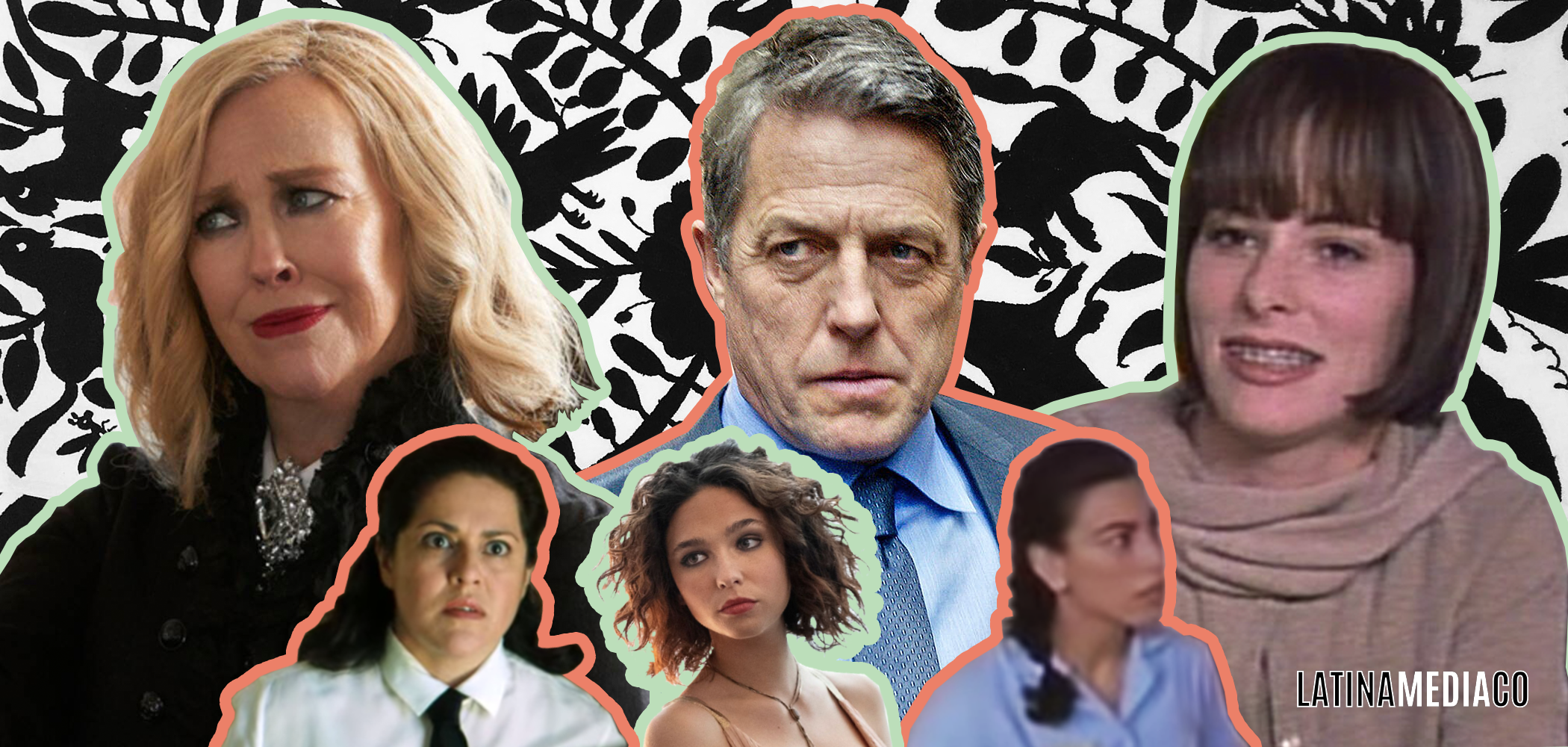I used to be very forgiving when it came to storytelling, no matter how many stereotypical inaccuracies a piece had. When I was a kid, all I wanted was to be validated in my own humanity, pain, and humor. So, I watched movies. That’s where I was introduced to the world of beautiful porcelain-skinned women, quickly learning they represented the kind of beauty that I would never have. Because of this, I eventually changed the way I was. I straightened my hair and damaged it so much I lost my curl pattern. I changed the way I spoke, especially after attending acting school. I pinched my nose with a clothespin to make it straighter. It never worked and I was left heartbroken. Storytelling was (and still is) my safe haven. I turn to it when I need a break, a blast of inspiration, or to plainly lose myself in someone else’s world.
Last year (when Covid gave me nothing but time and anxiety), I stayed indoors and watched everything I could find on my family’s shared streaming services. I am SO grateful to have those passwords. I had just moved to LA from my hometown of New York City where I worked 50–60 hours a week between three, sometimes four different jobs for over three years. I barely slept and I barely lived. As a storyteller, I was lost and unable to find inspiration. When I did, I wrote characters longing to be white and I wrote myself as white as I could. It was the first thing that came to mind, and the one thing I was sure would be relatable to the masses. It never worked out.
In LA, I watched all the movies and shows I’d never gotten around to in New York. I had always known about the genius of Christopher Guest and loved This is Spinal Tap (I still want an amp that goes up to 11). So, I watched his other films including, Best In Show, a classic, laugh-out-loud comedy that cured my depression for a while, at least until the trope that Hollywood can never get over appeared. This trope is strategically placed and always catches me by surprise.
I wrote characters longing to be white and I wrote myself as white as I could. It was the first thing that came to mind, and the one thing I was sure would be relatable to the masses. It never worked out.
In Best In Show, the only Latinx character is a maid (which is typically what we get portrayed as) and during the ONLY scene she is in, she not only has no lines, but she is also yelled at and threatened by Parker Posey’s character about being deported because she believed she’d lost her dog’s toy. The following week, I decided to give Schitt’s Creek a try since so many people had been telling me I NEEDED to watch it. I hadn’t been interested because honestly, I just wasn’t. But I tried and there that trope was again smacking me in the face. The first scene showcased the rich families’ Latina maid opening the door to see a group of authorities and this prompted her to immediately deliver her only line:
“Deportation?”
My stomach dropped. Again, we were just the maid. Objectively, I can appreciate why this show is so loved. It is palatable and easy. Another trope Hollywood can’t get over. Giving in to easy narratives that comfort and benefit white supremacy. But I’ll let you in on a little secret Latinxs are palatable too and can EVEN be easy.
A month or so later, I saw the trailer for The Undoing coming out on HBO starring Nicole Kidman and Hugh Grant, two heartthrobs I’ve loved since the dawn of time. I saw that it was a true-crime drama and I was sold. I love thrillers centering around murder (I know, I know, I need to talk to my therapist about this).
I’m not hard to work with though — I’m just exhausted by constantly seeing Latinas pushed into a one-size-fits-all model.
The first episode featured a Latina character (yay!) named Elena Alves, and as soon as my excitement arrived, it vanished. Her character was the temptress and she was the only female character who had a full-frontal nude scene. Then she was brutally murdered. Great. For the rest of the series, most of her scenes featured her being killed by her white lover, Hugh Grant, smashing her head in.
In this story, like many many others, the purpose of her character is to be exploited, presented as a victim of horrific violence and the villain who had it coming. Later, I researched the show and found that the actress playing Elena Alves wasn’t even Latina, she was Italian. Because apparently, she looked more Latina than an actual Latina actress. Sigh.
Hollywood is dictating the narrative and visibility of the Latina experience. The gatekeepers are perpetuating this violence and harm toward my community, unwilling to showcase us as the leads in stories because we are unknown or not “palatable.” But we are, we really are! I am always afraid of speaking about these things because as a screenwriter, I fear my beliefs and pain will be pushed aside and considered “hard to work with.” I’m not hard to work with though — I’m just exhausted by constantly seeing Latinas pushed into a one-size-fits-all model. We actually are a thriving community not ruled by violence and the lazy Hollywood Latinx tropes. So I’d like to tell the industry, with all the love in my heart, if you can’t be better yourself, at least give me the space to be better for you.

